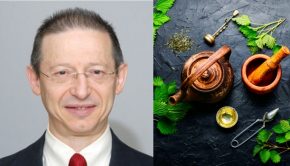The Holistic Approach: Seeking the Root Causes of Illness
It is well understood, through online presentations, PBS shows, and even TV commercials that diet, nutrients, sleep, exercise, and behavioral change are key players in one’s overall health and prospects for optimal long-term health. And yet, for many traditional medical practitioners, the first line of action remains prescription medication. These drugs often have associated undesirable effects and some pose longer-term, sometimes dangerous health risks. Of course, pharmaceuticals have their place in the treatment of illness, but rarely do they address the underlying or “root cause” of a medical problem. So many people nowadays find themselves seeking alternatives to traditional medicine.
Typically, patients seek the care of an integrative medical doctor for one of several reasons:
1- Troubling symptoms, but no traditional diagnosis has been or can be made (usually fatigue, joint pain, rashes or gastrointestinal problems)
2 – Traditional treatment is not working effectively on a diagnosed condition
3 – Prescribed medications are causing unpleasant side effects or are known to have negative long-term consequences
4 – Interest in optimizing health (perhaps at age 50 or similar), having decided that it is important to insure a long and healthy life going forward
The first step for an integrative doctor is in evaluating a new patient in all of these scenarios is to get a detailed accounting of anything and everything: Diet, medical history, and family history. In a more traditional context, the history might be considerably more limited, focused on any specific current patient concerns. So why the extra-detailed lengthy history, followed be an extensive and often wide-ranging panel of diagnostic tests? For an explanation, let’s look at one specific term: “holistic”. You may think of holistic medicine as medicine that employs natural, non-pharmacological methods to promote wellness and support great health, and that is quite true. But another key aspect of holistic medicine is that it is based on the reality that all systems in the body function as a whole.
In this context, though it may seem illogical at first glance, it is impossible, for example, to gain a true understanding of many dermatological problems, psychiatric problems, or autoimmune problems (to name just a few), let alone GI issues, without exploring diet, sensitivities to certain foods, and the balance of bacteria in the gut, known as the “microbiome”. Why then isn’t testing to explore these areas run by dermatologists, psychiatrists, rheumatologists, and gastroenterologists? In all fairness, several of them do indeed search into these areas. But, by and large, these would be specialists who had in fact incorporated some degree of holistic or functional medicine into their practices. For the most part, this type of testing would be bypassed and so, left to integrative/holistic practitioners to pursue.
To seek the “root cause” of a medical condition, not by guesswork, but by medically proven testing and careful history, is the most sensible, fact-based, logical way to correct many medical problems, avoid the perils of medications, and poise oneself for life-long optimal health. While there is a role for pharmacy, even polypharmacy, it is always worthwhile with any medial concern to make that extra effort to understand, correct, restore, and resolve that issue. That is indeed why one such holistic practitioner coined another, and possibly the most applicable term for this unique approach: “Intelligent Medicine”. Bottom line: Good medicine simply makes good sense.
Robin Ellen Leder, M.D., was mentored by Robert Atkins, M.D., author of The Atkins Diet, and has been practicing integrative/alternative medicine for more than 30 years at A Better Alternative Medical Center, in Hackensack.




























